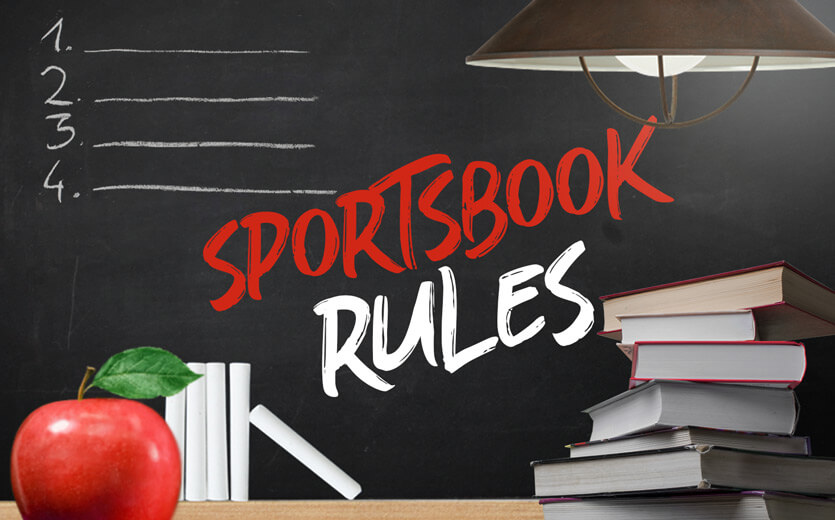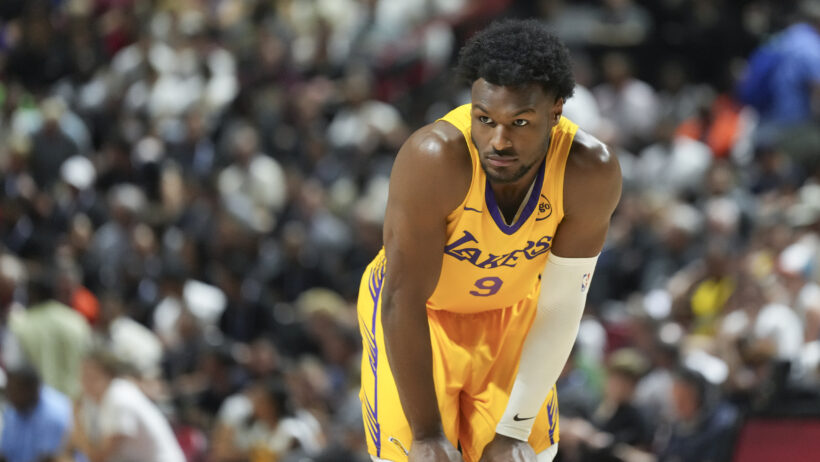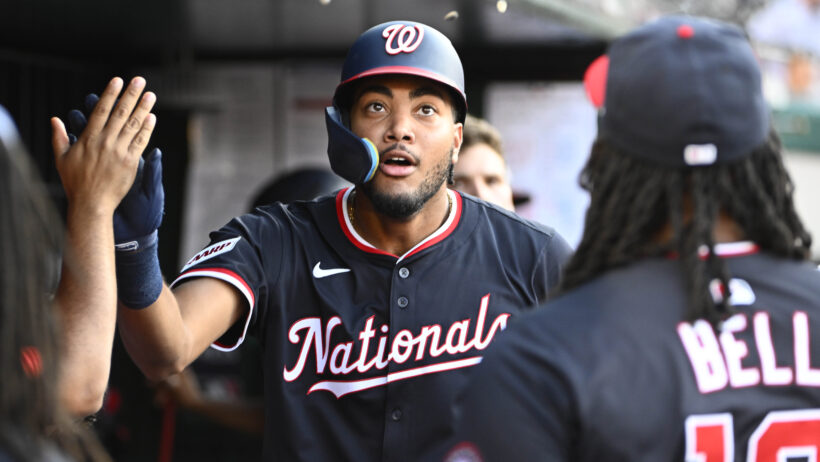Sportsbook Rules to Know Before Betting

Betting on sports can be intimidating. Thanks to our helpful guides, you already know where to bet, and how to read and understand lines and odds at your sportsbook. But before you dive into the world of sports betting, make sure you know what rules you have to follow at your sportsbook. We’ve been betting on sports since the early 2000s, and we know the ins and outs of how to lay a bet that counts.
In this article, we outline all the important information you should know before placing a bet at your sportsbook of choice. The last thing in the world you would want is to have not followed an easy rule, and miss out on your winnings!
Read on to learn more about when your bet becomes official, what procedural policies most sportsbooks follow, and standard terms and conditions of your bets.
Rest assured, these rules and policies are not complicated.
Sportsbooks are legitimate businesses, and they have to follow specific rules to stay successful in the market; these fair rules are ultimately designed to keep their customers happy.
Specific rules vary from sportsbook to sportsbook, and you can find each book’s house rules on their app or online. So we’ve compiled a list of rules that will be in effect at whichever sportsbook you bet at.
The Fun Part: Odds and Lines
1. All prices and the odds attached to them are subject to change.
With so many lines on so many different events, sportsbooks make mistakes. It’s easy to forget, but regular ol’ bookmakers behind sports betting sites are humans after all. In the event of a clear error on the posted line, scheduled time, or max wager, any wagers will be voided and deemed a “no action” wager. All money will be credited accordingly. Bettors betting on a mistakenly lopsided line will have their money returned.
2. Games have to be played on the day they are scheduled.
Sportsbooks base their available odds on a particular set of factors. If a game is postponed or rescheduled for any reason, your sportsbook will have to recalculate their odds. This is because the circumstances affecting a winner or a loser of a game are likely to change.
3. All bets have to be placed and accepted before the commencement of the game or event that is being bet on.
Bets placed or received after the start of the game or event will be voided. This rule is relatively self-explanatory. If your bet somehow gets through after the game has started, your bet will be voided. Sportsbooks aspire to create a fair playing field for everyone.
4. You are generally restricted from betting on both the moneyline and the point spread of a particular game, both individually and within the same parlay.
Multiple bets are not accepted where the outcome of one part of the bet contributes to the outcome of another. These are called correlated plays. If sportsbooks allowed this, their exposure to any one event would be more significant than they want.
5. You are generally not allowed to bet on the point spread and the total of the same event.
See explanation above. Betting on correlated events is a no-no in the world of sports betting.
6. The outcomes of Major League Baseball games are usually determined official after 5 innings of play.
Sometimes, games are determined in 4½ innings if the home team is leading. If a game is subsequently called off or suspended mid-game, the winner is determined by the score that is listed after the last full inning. This is unique because NFL, NHL, and NBA games are not called off early, except in the case of emergency. In the rare fact that an NFL, NHL, or NBA game is incomplete or called off early, the result will more than likely be a “push.”
7. Generally, if you are betting on the “next” event, all wagers on that index will be no-actioned when the game is over.
If you are betting on the “next” event to take place, and the game ends, then your bet will be no-actioned. You will get your money back, and the bet is treated as a “push.”
8. If the odds for a bet have changed significantly between the time the bet is submitted and the time the bet is confirmed, your sportsbook will reject the bet.
If this happens, you will be asked to reconfirm the bet against the updated odds. The principle behind this is just like to the one we mentioned above, in regards to sportsbooks trying to create equal opportunities for all bettors. Sportsbooks do not want to see people exploiting technical loopholes. This rule only pertains to live betting.
The Nitty Gritty: Procedural Terms and Conditions
1. You must be 21 to bet online or 18 to bet in person at some locations.
The legal betting age for nearly all online sportsbooks in the US is 21. There are several retail sportsbooks, however, where 18 is the legal betting age. This can even happen within a single state. Take Michigan, for example, where 21 is the legal age for online sports betting, but many of the tribal casinos allow you to bet 18.
2. Bets are able to be placed as soon as funds deposit successfully in members’ accounts.
As soon as your sportsbook has confirmed your funds, you’re ready to start betting!
3. Third-party deposits are largely prohibited.
This is self-explanatory. Sportsbooks do this to protect themselves from fraud or any potential legal action from third parties. If you are depositing, you will have to do so with funds that belong to you.
4. Verification/settlement before withdrawal.
In nearly every case, you will have to verify your identity before withdrawing funds from your sportsbook. Sportsbooks do this to make sure that money is going to the right person, and to protect themselves from any fraudulent activity.
5. All accounts are private and confidential.
Sportsbooks will not share any information about you or your history with a third party.
6. Sportsbooks will reserve the right to accept, limit, or refuse any wager.
If a sportsbook has a suspicion you are engaging in any fraudulent behavior, they have the right to block any betting-related activity.
7. Sportsbooks reserve the right to restrict the maximum wager before they agree to accept any bet.
Sportsbooks do this to mitigate their risk. The last thing they want to is to take on too many bets at once and be unable to pay out winners.
8. You can not bet more than what is in your account.
This is sports betting, not the stock market. You can’t bet on margin!
9. No wagers can be canceled once confirmed.
Once you’ve bet, you can’t withdraw it! For this reason, you should always make sure that you are 100% sure on what you’re betting on. However, sportsbooks will let you bet on the opposite side of an event to act as a hedge.
10. There will a maximum amount available to win on certain bets; sportsbooks will place limits.
Sportsbooks might place a limit on your wager, depending on the odds. They might also limit how much you can bet if you do too much winning. Chances are you’re not a sharp bettor, though, and won’t run into this.
11. It is your responsibility to report your transactions to the appropriate taxable jurisdiction.
Your sportsbook will do a lot for you, but it won’t pay your taxes. Sportsbooks cater to customers all over the world, so make sure you do your required diligence on what the legal rules and regulations are in your home country.
12. A sportsbook is not responsible for clients who disclose their password and account number to other parties.
Keep your account safe! Make sure to enable two-factor authentication, and keep your password and information in a safe place. After all, it is real money that is in your account.
13. Only one account is allowed per person, and multiple accounts will be voided.
It is a familiar refrain by now, but sportsbooks do this to protect themselves from fraud. They want to reduce their exposure to unfair bets, in order to be able to continue paying customers who are abiding by the rules.

Evergreen Writer/Editor; Sportsbook Expert
With nearly two decades of experience in sports media, Paul Costanzo turned his professional attention to sports betting and online gambling in January of 2022. He's covered every angle of the industry since then, managing and creating content for PlayMichigan and The Sporting News, and now SBD.



